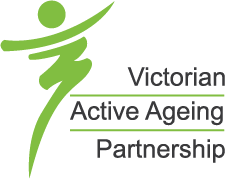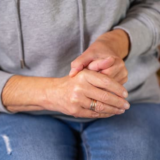VAAP – Self Assessment Tool and Resources
Leaders – YMCA
Trained
Helpful tips:
- Employing/engaging the ‘right person in the first place’ (i.e. a person with the appropriate qualifications and/or training, and good interpersonal skills) is a critical step in ensuring good quality leaders/tutors/coaches/instructors.
- It is beneficial for a senior staff member or volunteer coordinator to have the designated responsibility of supervising, assisting and mentoring less experienced staff/volunteers.
- It is important that staff/volunteers have a good level of knowledge regarding organisational policies relating to participant privacy, confidentiality, disclosure, emergency procedures, etc.
- Having trained and knowledgeable staff/volunteers is also part of an organisation/service/club’s risk management.
Resources:
- VAAP online PD modules, ‘Engaging older people in physical activity’
- Fitness Australia
- Physical Activity Australia
- Musculoskeletal Australia
Broad exercise knowledge
Helpful tips:
- If a leader is unsure of the appropriate advice to give, they should seek advice from another relevant staff member or refer the older people to another relevant health/fitness professional.
Resources:
Monitoring and assessment
Helpful tips:
- Any documentation relating to participant assessments should be maintained accurately and securely.
Resources:
- Refer to the VAAP Seniors Physical Activity PEP (Program Engagement and Planning) Guide for some key points to cover when dealing with new participants to your group.
- Some qualified fitness and exercise professionals may wish to use the Adult Pre-exercise Screening System.
Enthusiastic
Helpful tips:
- Having a basic understanding of the factors that act as barriers and positive influences on older people’s participation in physical activity will assist a leader to work better with the participants.
- Gaining feedback from participants regarding what might help to motivate them would be a useful conversation to have.
- Seeking a few tips about general motivational techniques would be worthwhile.
Resources:
- VAAP ‘Evidence-based best practice framework for engaging older people in physical activity’
- Better Health Channel
Personalised attention
Helpful tips:
- If the program leader/tutor/coach doesn’t have time to have individual discussions with each older person when they commence, if possible, have another appropriate staff member/volunteer/coach undertake this task and provide feedback to the leader/tutor/coach. The discussion with the older person should be two-way – providing and gaining information.
- Encouraging first-time attendees to introduce themselves to the program leader/tutor/coach at the start of the class and allowing some time before and after class for participants to ask questions or speak to the leader.
- Any documentation relating to participant assessments should be maintained accurately and securely.
- Making follow-up calls and/or sending messages to those who miss classes is a practical way of showing that they are valued, which is particularly important for socially isolated and disadvantaged participants.
Resources:
- Refer to the VAAP Seniors Physical Activity PEP (Program Engagement and Planning) Guide for some key points to cover when dealing with new participants to your group.
Inclusive decision making
Helpful tips:
- If changes are made based on the input of participants, continue to check in with them as to whether the changes are in line with what they anticipated.
Receives practice updates
Resources:
Use of referral processes
Helpful tips:
- As an organisation or group, prepare a list of local community health, support and information services, which can be available for older people. It is important that the list be regularly updated.
- Local councils are a good point of contact for local community health, support and information services.















